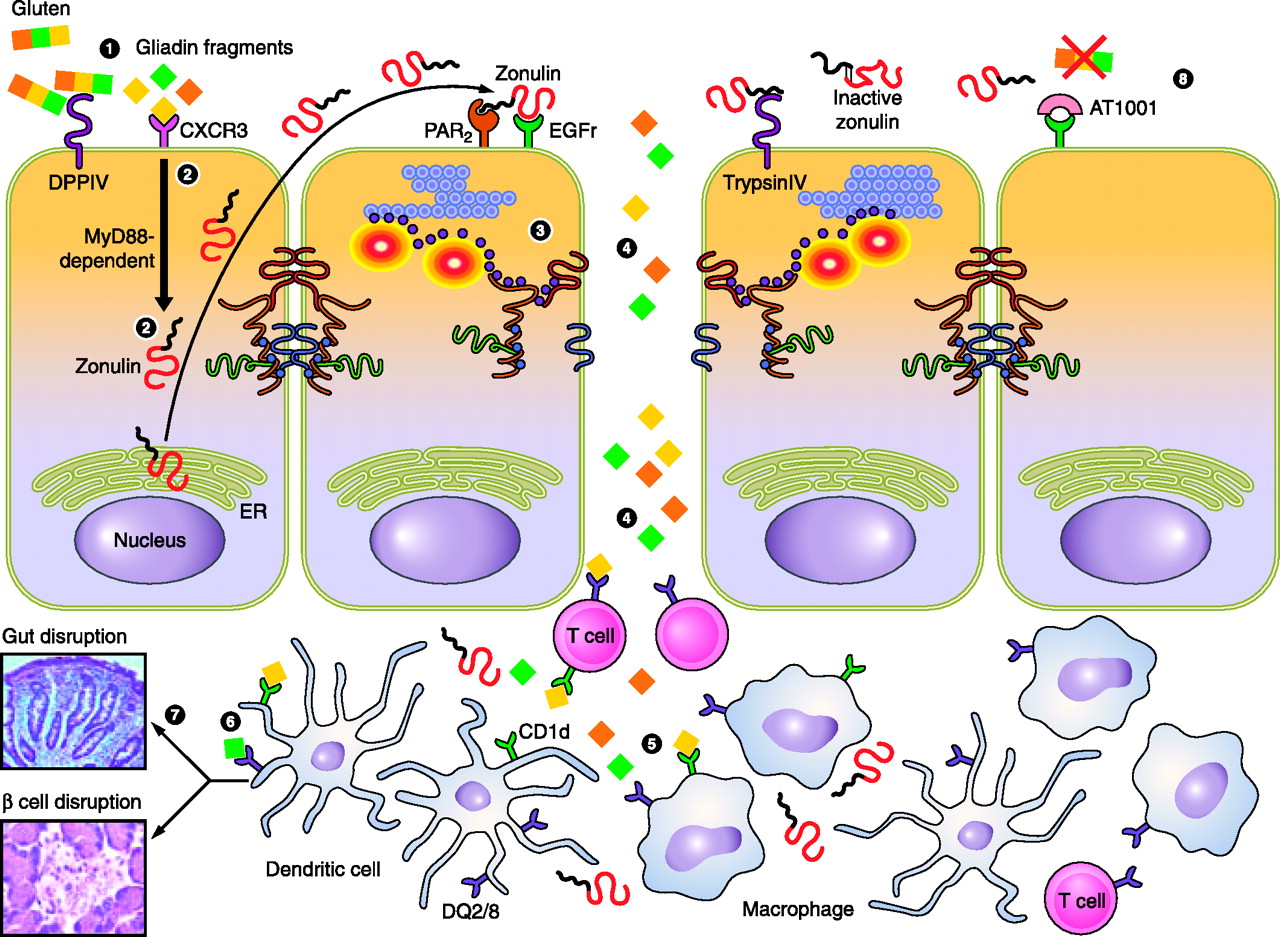
Gluten response in celiac patients could lead to diagnostic test
Science Daily
A study led by ImmunastaT Inc. could provide significant advances in diagnostic testing for celiac disease. The current testing requires patients to ingest gluten over an extended period of time, sometimes up to several months, before having an invasive procedure to sample the small intestine. During this time, the patient will experience the symptoms related to celiac, including nausea, vomiting, diarrhea, and abdominal pain. The new test involves researchers testing for immune markers related to celiac disease in blood samples. Initial research shows that these markers are present and detectable in blood samples in just a few hours after gluten consumption. Interleukin-2 (IL-2) was found to be the most prominent cytokine to appear shortly after gluten ingestion. Researchers believe that celiac symptoms are caused by gluten-specific CD4+ T-cells are being reactivated by the presence of these markers.
Walter and Eliza Hall Institute. “Gluten response in celiac patients could lead to diagnostic test: Exciting step towards world-first blood test for diagnosing coeliac diseaes.” ScienceDaily. ScienceDaily, 7 August 2019. <www.sciencedaily.com/releases/2019/08/190807144403.htm>.
Journal Reference:
Gautam Goel, Jason A. Tye-Din, Shuo-Wang Qiao, Amy K. Russell, Toufic Mayassi, Cezary Ciszewski, Vikas K. Sarna, Suyue Wang, Kaela E. Goldstein, John L. Dzuris, Leslie J. Williams, Ramnik J. Xavier, Knut E. A. Lundin, Bana Jabri, Ludvig M. Sollid, Robert P. Anderson. Cytokine release and gastrointestinal symptoms after gluten challenge in celiac disease. Science Advances, 2019; 5 (8): eaaw7756 DOI: 10.1126/sciadv.aaw7756
Eagle Biosciences offers highly sensitive assays for detection of IL-2 in human plasma and serum samples:
Human IL-2 High Sensitivity ELISA Assay Kit
Human IL-2 ELISA Assay Kit
We also offer IL-2 Assay Ready Cells from our iLite line:
iLite IL-2 Assay Ready Cells
If you have any questions about these products, or if you are looking for a specific cytokine product, contact us.


